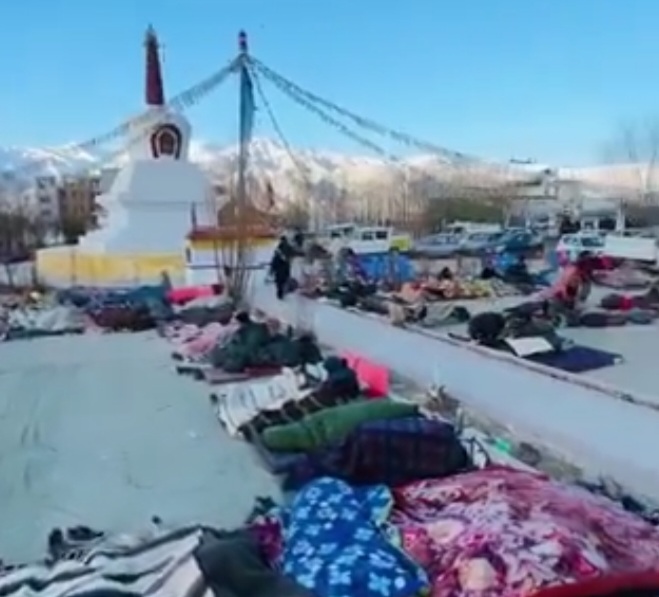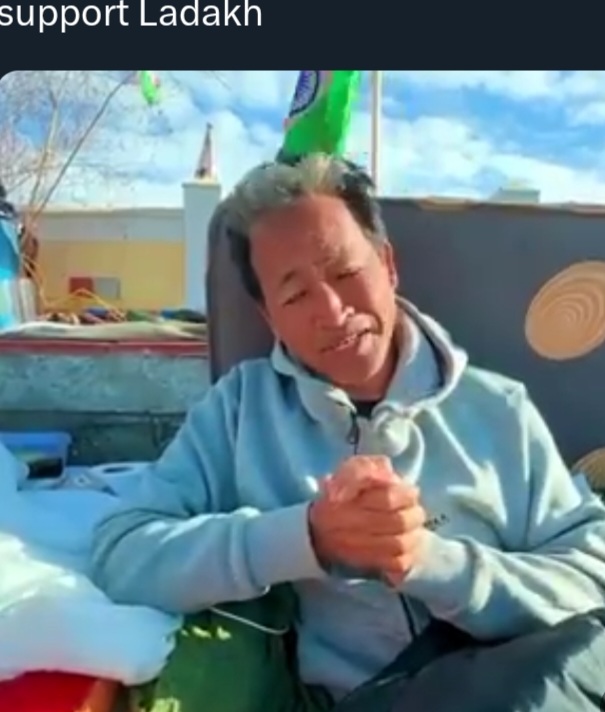As Sonam Wangchuk's climate fast enters its thirteenth day, his resolve remains unyielding despite deteriorating health conditions.
In a chilling reminder of the stakes involved, 250 Ladakhis endured a night of hunger in -12°C temperatures.
Their silent resolve , echo the urgent call for the Indian Government to honor its commitments to safeguard Ladakh's environment and tribal indigenous culture and giving them choice to choose and elect their people to decide and govern.
call for the Indian Government to honor its commitments to safeguard Ladakh's environment and tribal indigenous culture and giving them choice to choose and elect their people to decide and govern.
Wangchuk's protest has garnered widespread support, with participants from across the Himalayan region and beyond joining in solidarity.
Despite being miles apart, voices resonate in unison, demanding response to the Ladakh's pain.
The fervor of Wangchuk's plea reverberates beyond the frigid winds of Ladakh, reaching the corridors of power in New Delhi.
Describing India as the 'Mother of Democracy,' Wangchuk draws attention to the glaring contradiction of denying democratic rights to the people of Ladakh, likening the government's stance to that of a 'Stepmother of Democracy.'
Former military personnel also add their voices to the chorus, recalling the indispensable support of Ladakhi civilians during Operation Vijay in Kargil.
Their testimonies underscore the symbiotic relationship between the local population and national security, emphasizing the interconnectedness of Ladakh's environmental preservation with broader national interests.
In response to Wangchuk's impassioned plea, citizens across the nation are urged to amplify their voices and contribute to the #SAVEHIMALAYAS cause.
From token fasts to social media activism, individuals are called upon to do their part in ensuring that the voice of Ladakh does not fall on deaf ears.
As Wangchuk's resilience defies the harsh elements, the nation watches with bated breath, offering prayers for his well-being and strength. With hashtags like #SaveLadakh, #SAVEHIMALAYAS, and #SaveGlaciers gaining momentum, the urgency of the situation cannot be overstated.
Amidst the cacophony of political rhetoric, Wangchuk's hunger strike serves as a stark reminder of the human cost of inaction.
As the days pass, the pressure mounts on policymakers in New Delhi to heed the call for action before it's too late.
The clock is ticking, and the fate of Ladakh's fasting people hangs in the balance. But Delhi caretakers remain careless so far.






